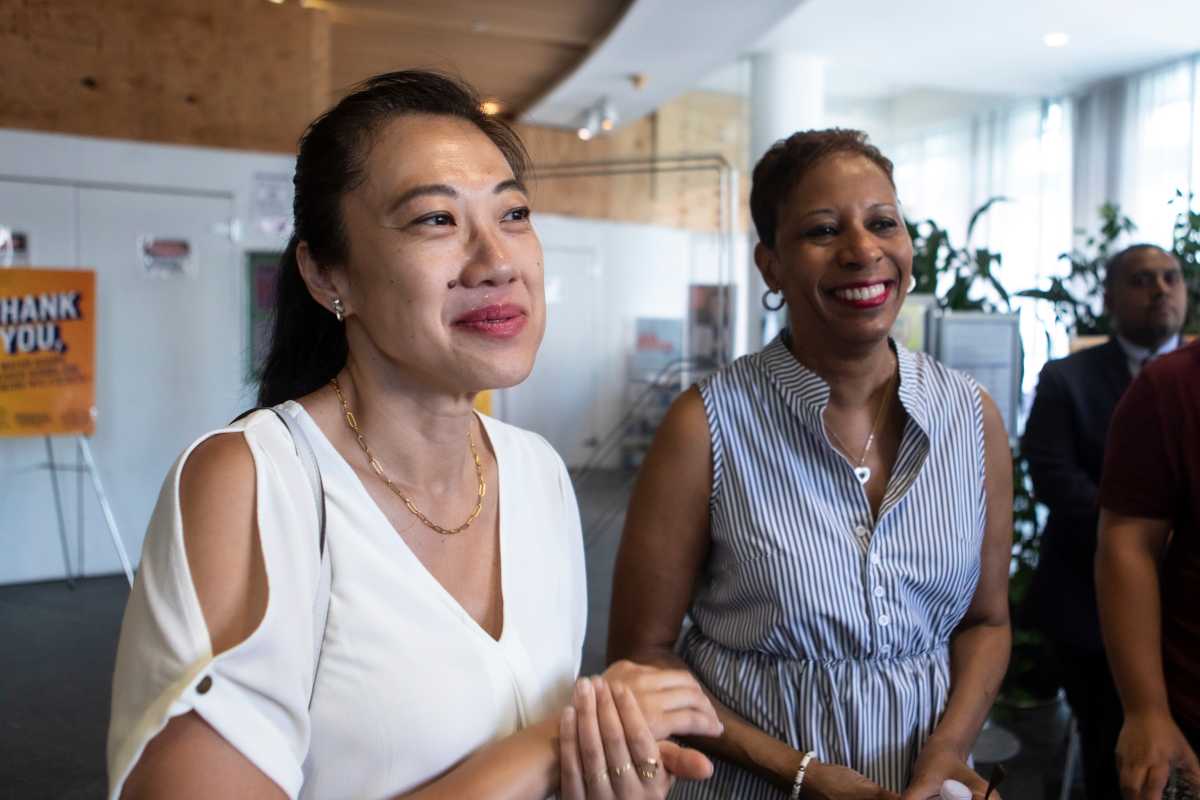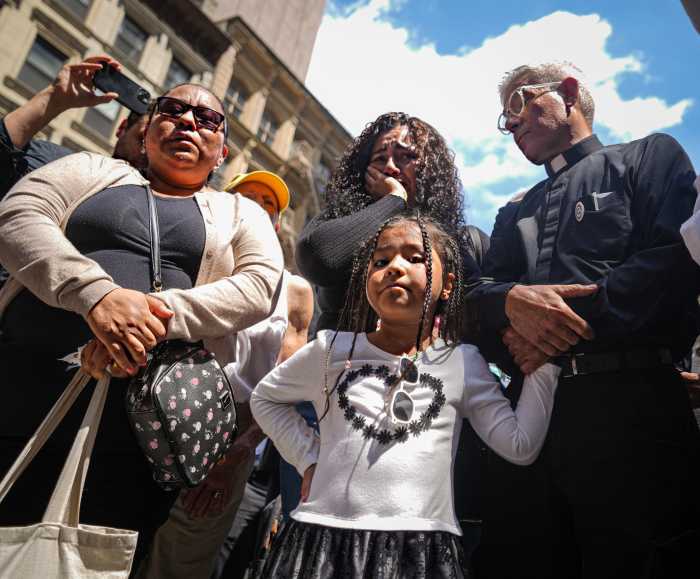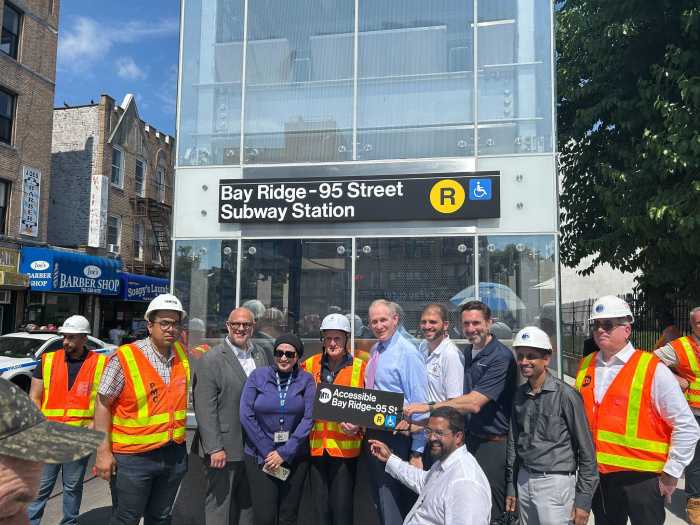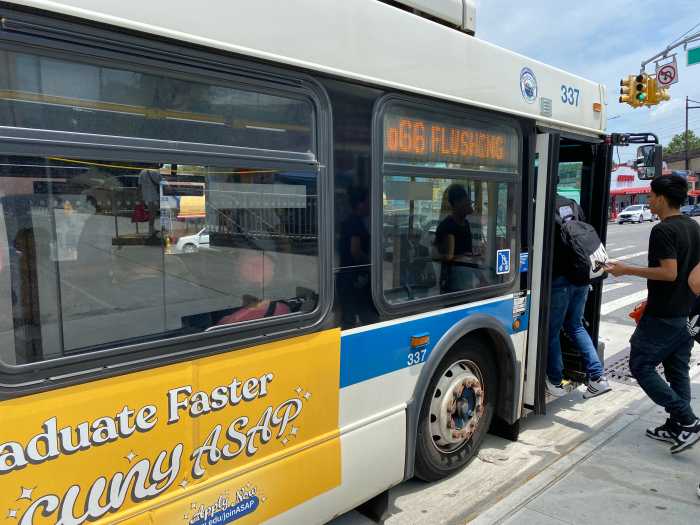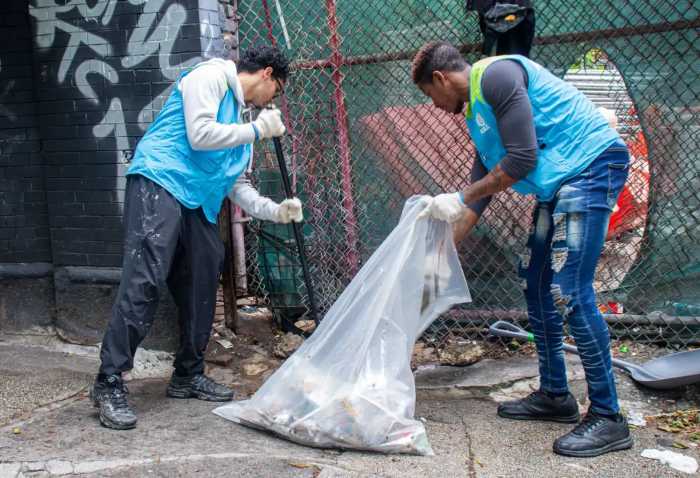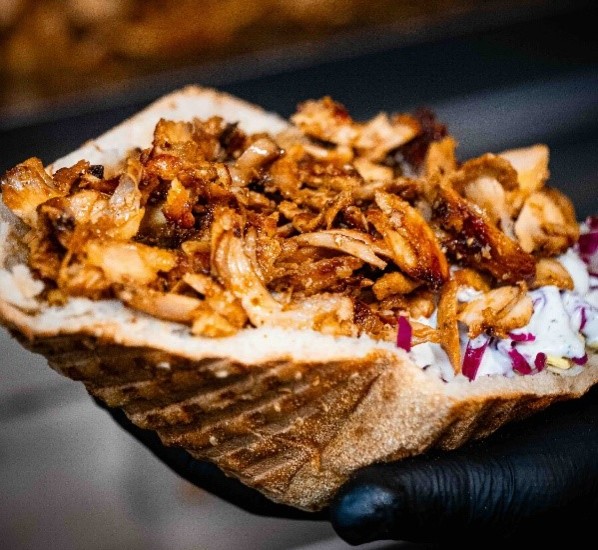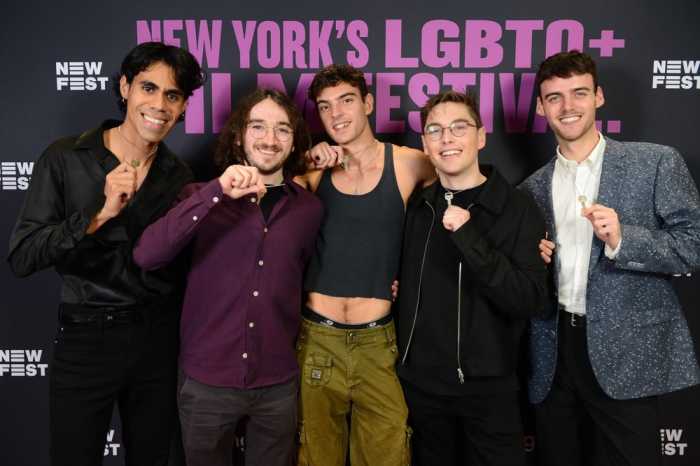
The Trump administration is now facing a lawsuit by three states, including New York, over its finalized changes to the "public charge" rule, which opponents say will result in the denial of green cards, visas and even citizenship to immigrants enrolled in such public programs as the Supplemental Nutrition Assistance Program that provides food stamps.
New York State Attorney General Letitia James announced Tuesday morning the joint suit, filed along with the attorneys general of Vermont and Connecticut, with some 50 immigration advocates and union leaders at her back. The lawsuit comes eight days after the administration announced the finalized rule. Eighteen other state attorneys general have filed separate lawsuits as well, all seeking to prevent the rule from going into effect on Oct. 15.
“For generations, the United States has been a haven for immigrants seeking opportunity and upward mobility,” said James at a news conference in Foley Square. “By expanding the public charge definition far beyond its historical and statutory boundaries, this new rule would effectively exclude from entry into the United States millions of black and brown low-income immigrants.”
“Public charge” is a term used in the Immigration and Nationality Act to refer to someone who is dependent on the government for long-term, primary support, according to the U.S. Citizenship and Immigration Services. The new rule would, in part, add to the programs weighed in determining who is a "public charge."
Under the Trump Administration’s changes, starting Oct. 15, the Department of Homeland Security can deny citizenship to those using noncash assistance programs, such as food stamps, WIC, subsidized housing and federally funded Medicaid except in cases of emergency treatment. It would also establish preferable levels for income, English speaking skills, physical and mental disabilities, and expand the “public charge” test to those seeking nonimmigrant visas and those seeking changes in nonimmigrant status. The rule would primarily impact immigrants seeking permanent resident status, according to the Immigrant Legal Resource Center.
Mitchell Katz, president and CEO of New York Health + Hospitals, said the added complexity will only make matters worse for New Yorkers seeking care.
“We already know of people who are avoiding care, even though this rule has not gone into effect, because there’s so much misinformation, there’s so much fear,” he said. “The rule itself is so complicated that people don’t know if it applies to them or not.”
The home care industry also could take a hit if the new rule goes into effect. Keith Joseph, vice president of Home Care Workers 1199 Service Employees International Union (SEIU), which represents workers along the east coast, said the changes would affect most of its 450,000 members.
“Predominantly our membership is almost 80% immigrants coming from different parts of the world,” he said. “There’s a section of our home care workers that basically make very little and there is no other choice they have than to go into public assistance. … This is an injustice to our workers who work so hard day in and day out to make ends meet.”
Attorney General James said all immigrants, regardless of status, should continue using the resources available to them.
“If the most powerful person in America refuses to uphold the most fundamental values of this nation, we the people, will,” said James. “We are fighting for the soul of our nation.”



